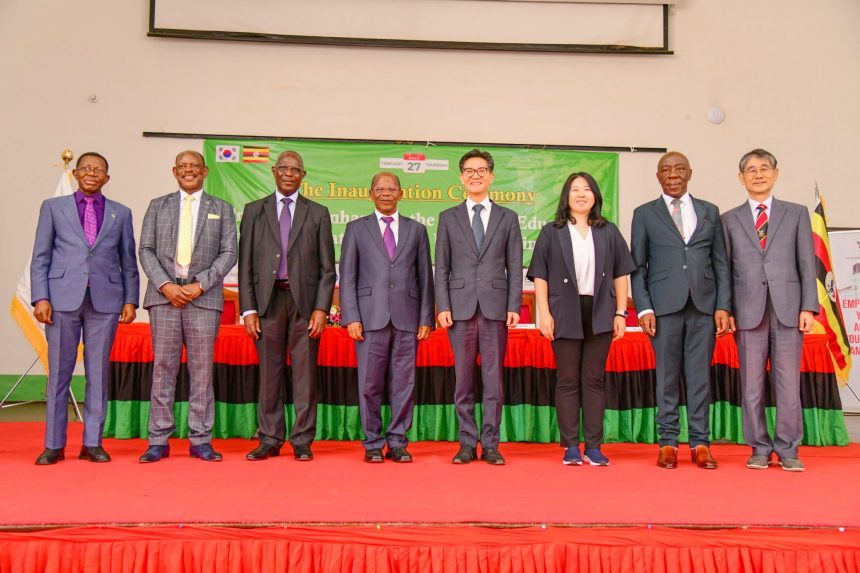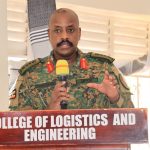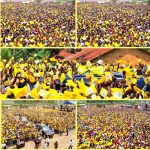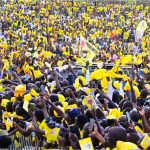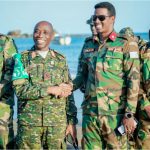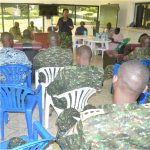Published on 28/02/2025
Minister of State for Higher Education, John Chrysostom Muyingo, has launched a project aimed at strengthening Makerere University’s Open, Distance and e-learning (ODeL) capacity.
Addressing guests yesterday (Thursday, February 27, 2025) while officiating the launch of a $12.2million (44billion shillings) Korea International Cooperation Agency (KOICA) grant, Mr. Muyingo, commended the Government of Korea, for supporting Uganda’s Education sector.

“This grant is more than just a financial contribution, it is a symbol of Uganda and the Government of Korea’s strong partnership to advance higher education, digital transformation, and skills development,” Mr. Muyingo, said.

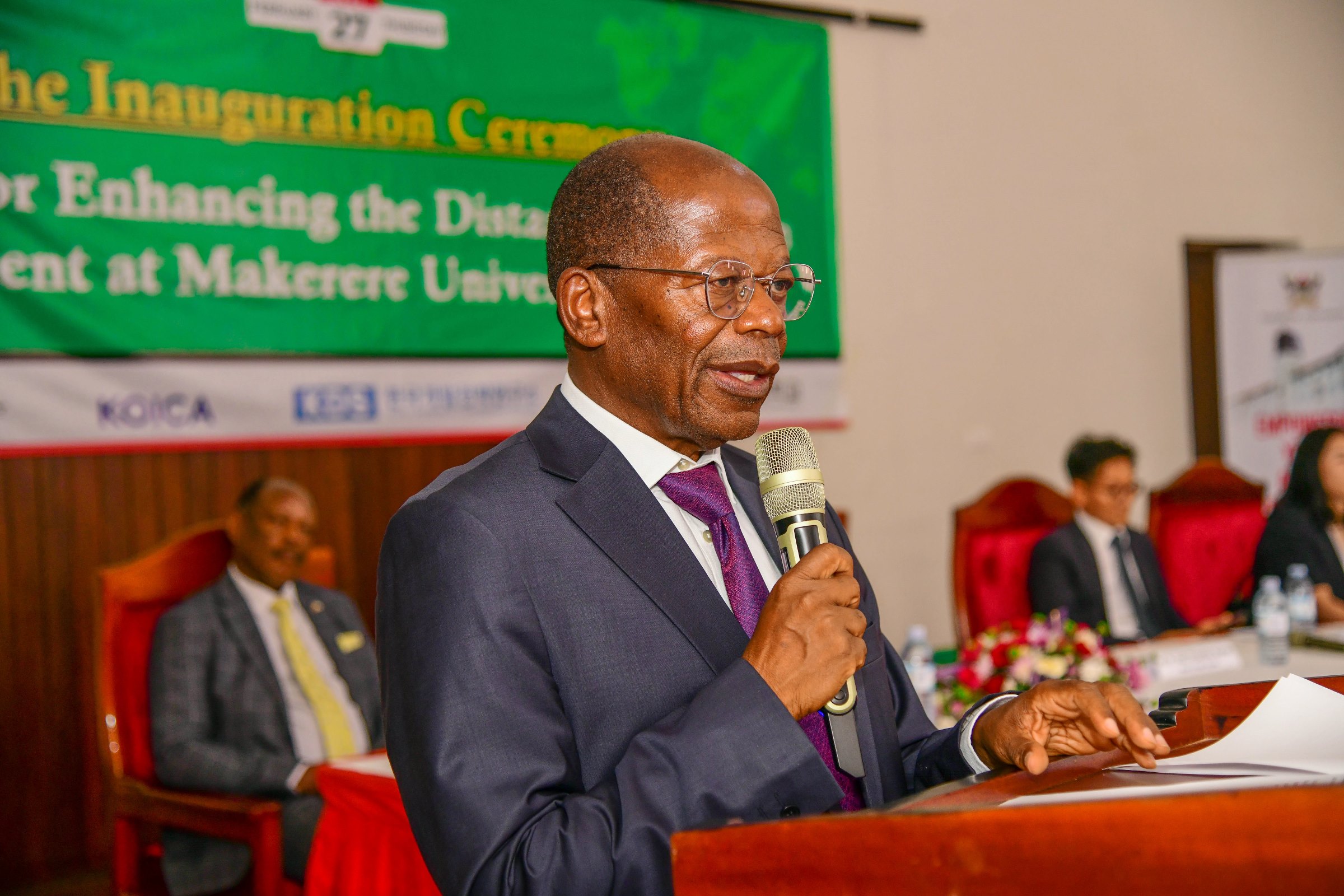
He highlighted that the grant will support the expansion of online learning platforms, improve access to digital resources, and elevate the overall quality of education which will bridge the gap between traditional and digital learning, something which will make Makerere University education more accessible and flexible for students both within Uganda and beyond.
“With the advancing technological environment, educational institutions have to work smarter and better than before to ensure that educators and learners have the appropriate tools to deliver quality and relevant education,” Mr. Muyingo, explained.
The minister also commended the Makerere University Council and the Vice Chancellor for their visionary leadership in steering the University towards excellence in digital education.
The initiative aligns with Uganda’s Vision 2040, which prioritizes human resource development, technological advancement, and expanded access to digital education. According to a recent World Bank report on Uganda’s economic outlook, the country’s economic growth remains stable. However, it highlights the need for greater investment in human capital.
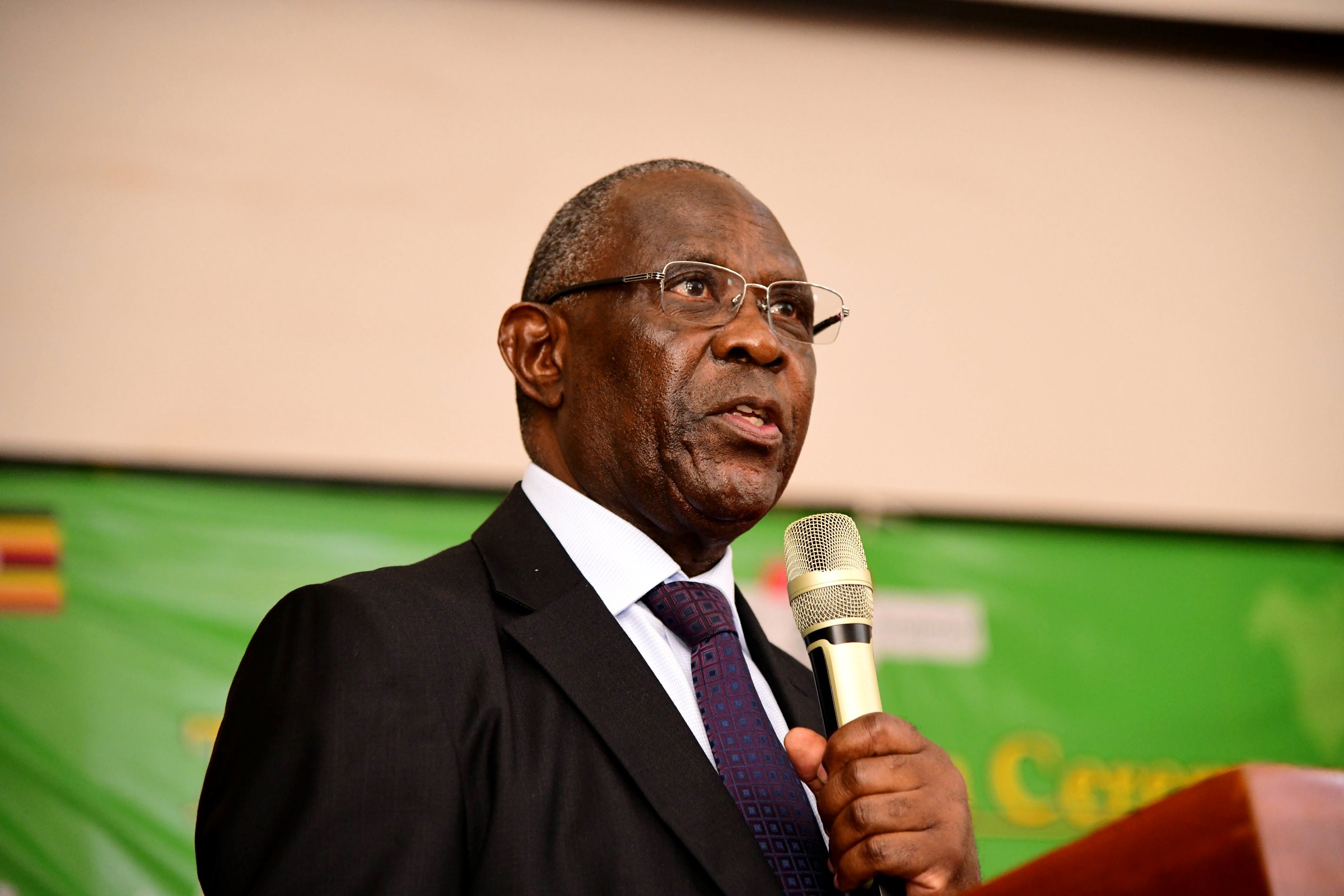
At the same event, the Chairperson Makerere University Council Mrs. Lorna Magara, encouraged students, faculty, and staff members to fully embrace the opportunity, and harness the power of technology to unlock Makerere University‘s full potential and drive a brighter future for Uganda and the region.
In her speech, read by Dr. James Nkata, a University Council member, Mrs. Magara, pointed out that the Makerere takes great pride in the partnership with KOICA, an organization whose dedication to education and development aligns perfectly with the University’s vision.
“I extend my heartfelt appreciation to the people of the Republic of Korea, for their trust and generous support of our vision. We are grateful for the continued collaboration and backing of the Ministry of Education and Sports and the Ministry of Finance, Planning, and Economic Development, whose commitment has been instrumental in making this project a reality,” Mrs Magara, said.
Prof Barnabas Nawangwe, University Vice Chancellor, noted that the trust of the Korean people in Makerere University is a testament to Makerere University’s reputation as a center of academic excellence and innovation.
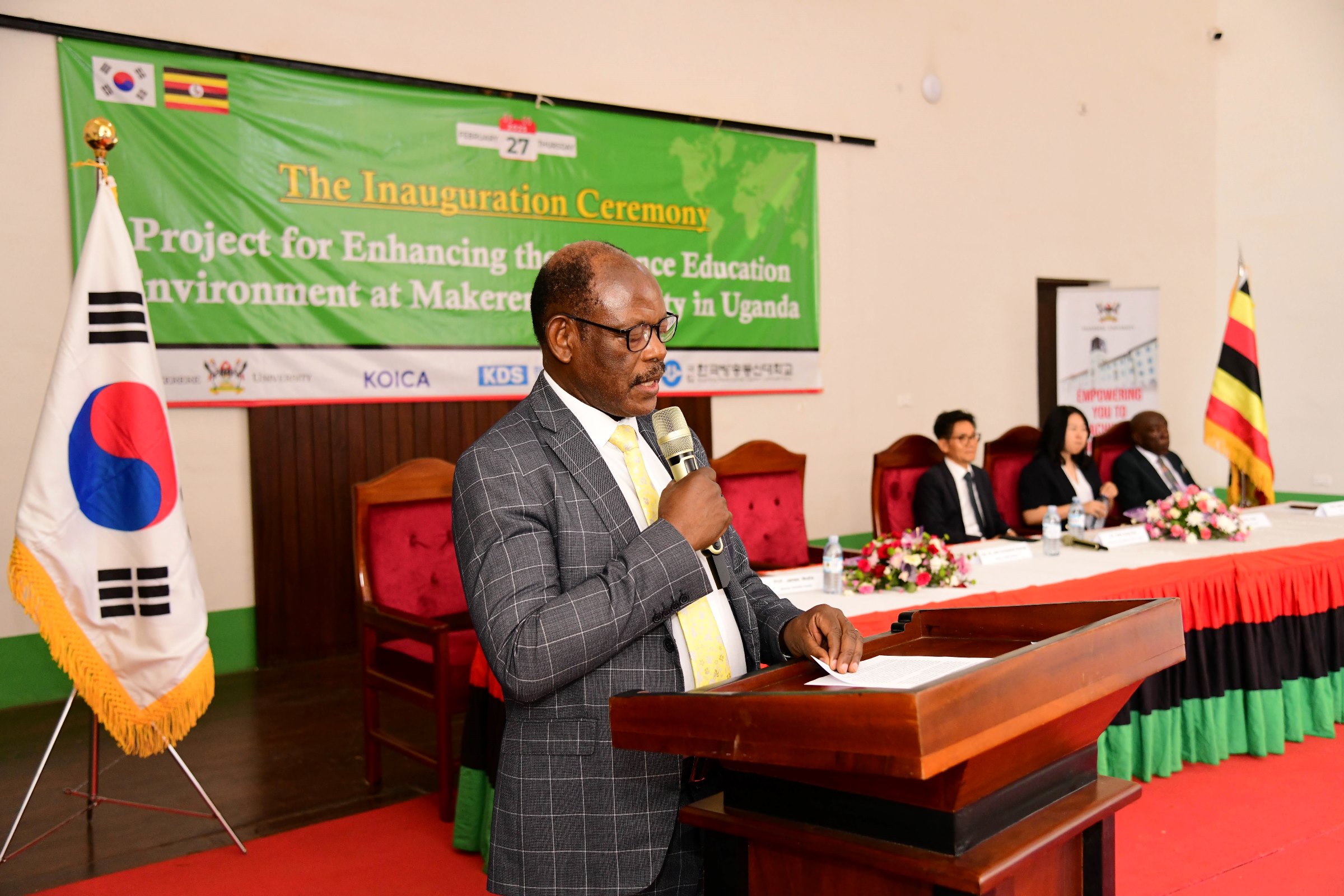
“The KOICA project aligns seamlessly with our institution’s strategic goals and Uganda’s national development priorities. By strengthening our ODeL framework, this initiative will enhance teaching and research capabilities at Makerere University while fostering innovation, digital entrepreneurship, and knowledge sharing across borders,” Prof Nawangwe, said.
Voicing his gratitude, Prof. Nawangwe, noted that through the project, the University will establish a dynamic e-learning ecosystem that nurtures creativity, critical thinking, and problem-solving.
“By equipping students and faculty with advanced digital tools and methodologies, we will drive the development of innovative solutions to address socio-economic challenges in Uganda and the broader region. We are confident that this initiative will have a lasting impact, improving livelihoods, stimulating economic growth, and promoting sustainable development,” Prof Nawangwe, pointed out.
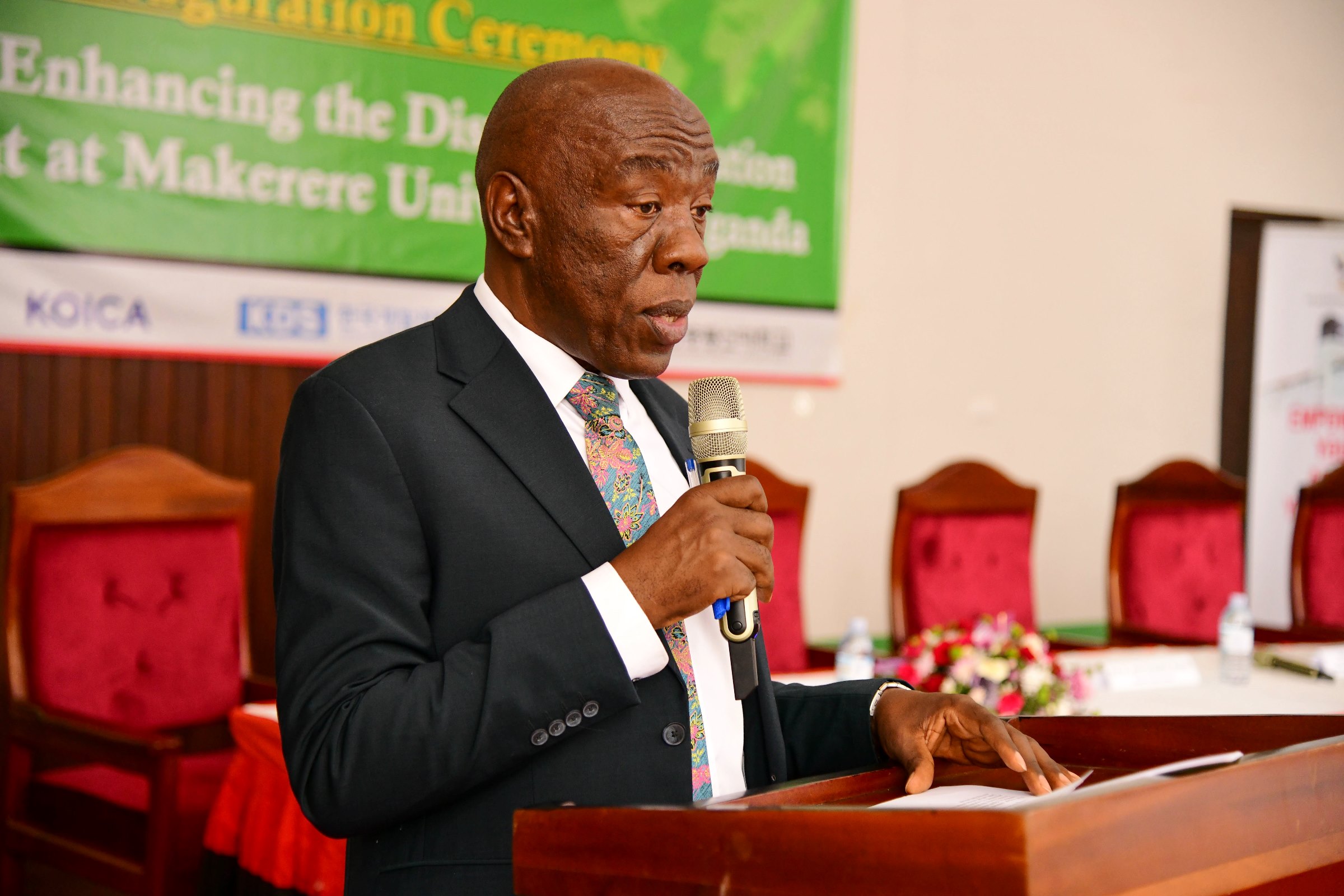
The Vice Chancellor commended Prof. Henry Mwanaki Alinaitwe and Dr Venny Nakazibwe, who have worked tirelessly to bring the project to fruition.
The Project team at Makerere include Prof. Paul Birevu Muyinda, Dr. Godftey Mayende and Mr. Paul Mugabi.
Presenting the project’s objectives, Prof. Alinaitwe, noted the University is going to establish a state-of-the-art e-learning facility, equipped with advanced tools and resources to support interactive and immersive learning experiences.
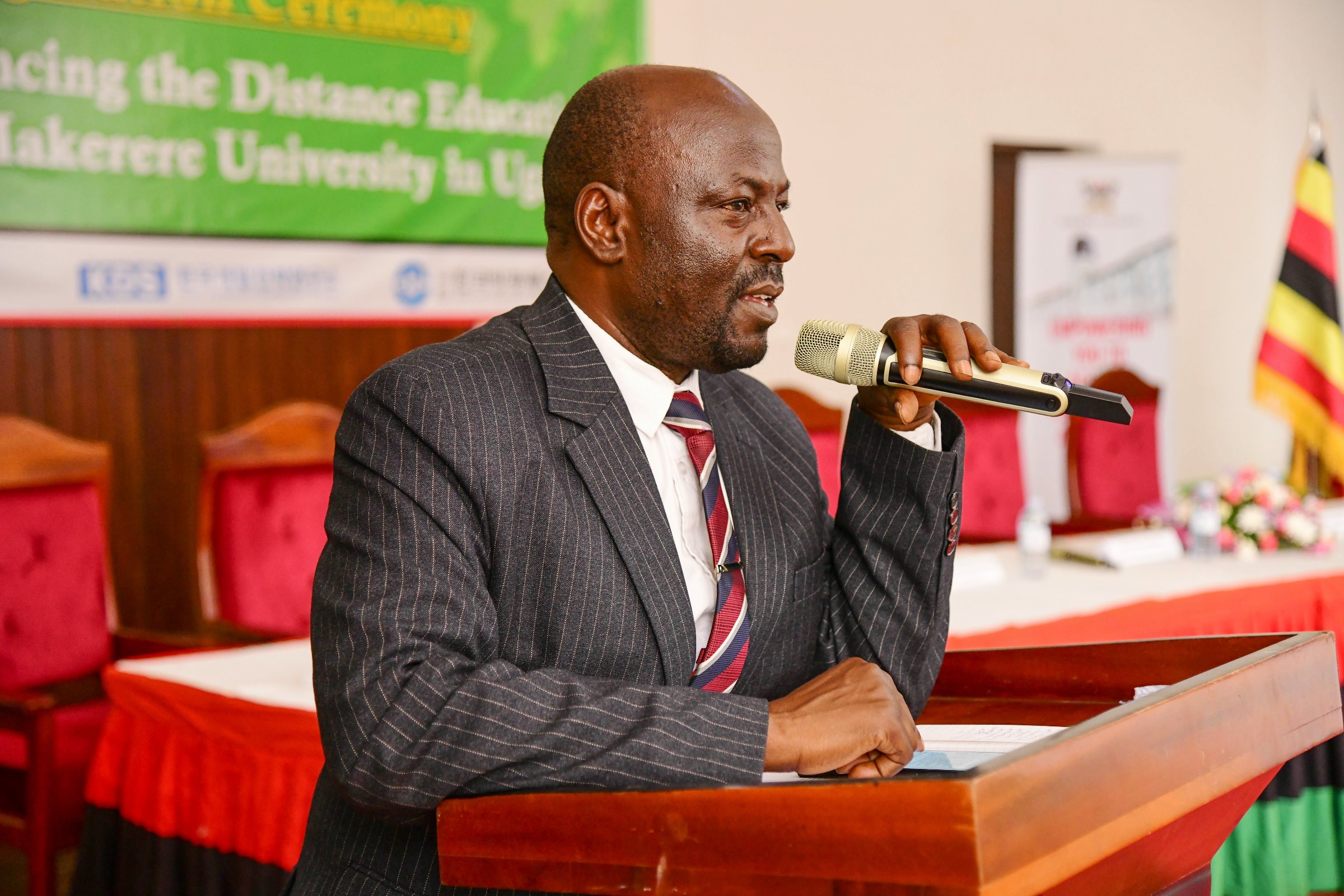
“We will have a masterplan to accommodate a platform and network of resources to guide the infrastructure development. We are also going to establish a state-of-the-art e-learning facility, equipped with advanced tools and resources to support interactive and immersive learning experiences,”
Prof. Alinaitwe explained that his team will create a comprehensive repository of high-quality digital course materials, tailored to the needs of students and faculty.
In his remarks, the South Korean Ambassador to Uganda, Park Sung-Soo, told guests that Korea firmly believes that education is the foundation of national development, and their own economic success was built upon strong investments in human capital.
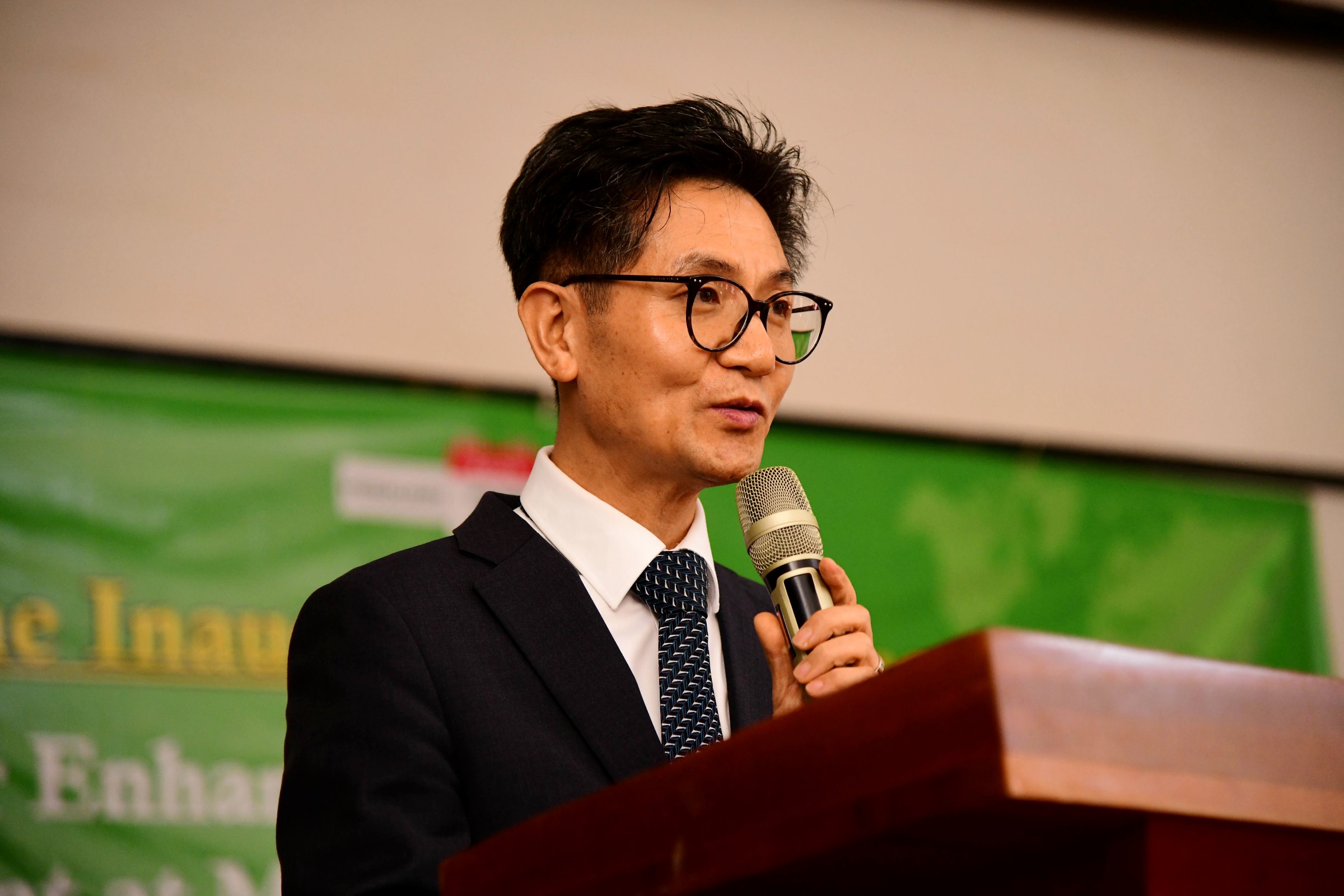
“Korea’s experience demonstrates that education is a long-term commitment, often described as a ‘hundred-year plan,’ and we are eager to share our knowledge and expertise with the Ministry of Education of Uganda and Makerere University to support Uganda’s educational advancement,” the ambassador, said.
The envoy explained that digital transformation is no longer an option but a necessity for ensuring equal educational opportunities and fostering future-ready talent that is why the Korean government is fully committed to supporting Uganda in this critical endeavor.
“The Covid pandemic showed us the critical need for flexible and resilient learning environments. As a global leader in information technology and a country that deeply values education, Korea is honored to work with Uganda to enhance digital learning infrastructure and expand access to education for all students, regardless of location or circumstance,” he said.
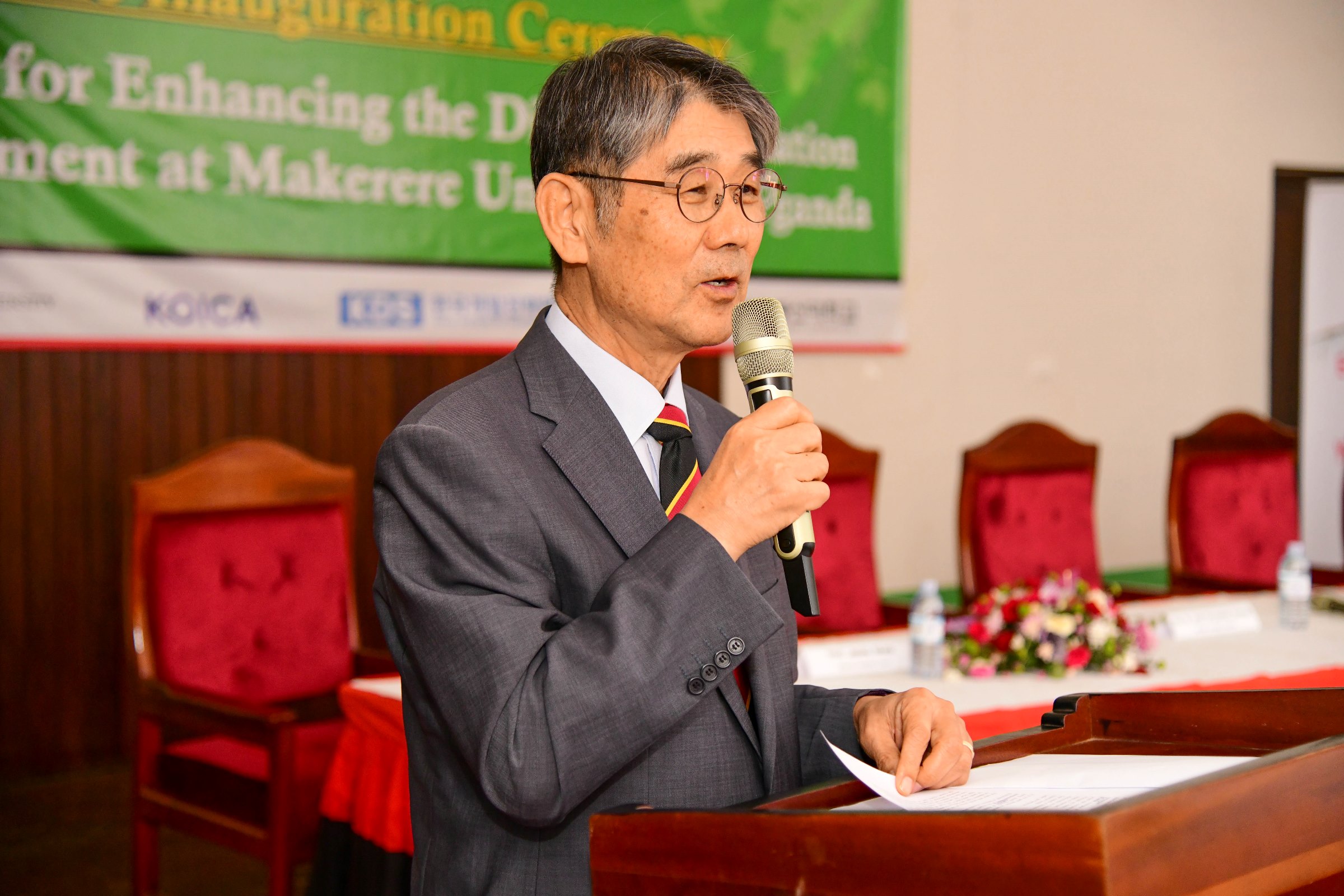
On his part, Prof Chun Seyeoung, explained that with the Mak ODel project, the most important engine for the success of Mak ODel project is the people who are destined to be involved and committed.
“Based on the valuable experience expected to be gained from this short-term Mak ODel project, Makerere University will be able to digitally transform so that the e-learning paradigm will be applied to all of the academic programmes including masters and doctoral programmes. Ultimately, Makerere University will be the central hub of ODeL for the entire African continent,” Prof Seyeoung, said.

